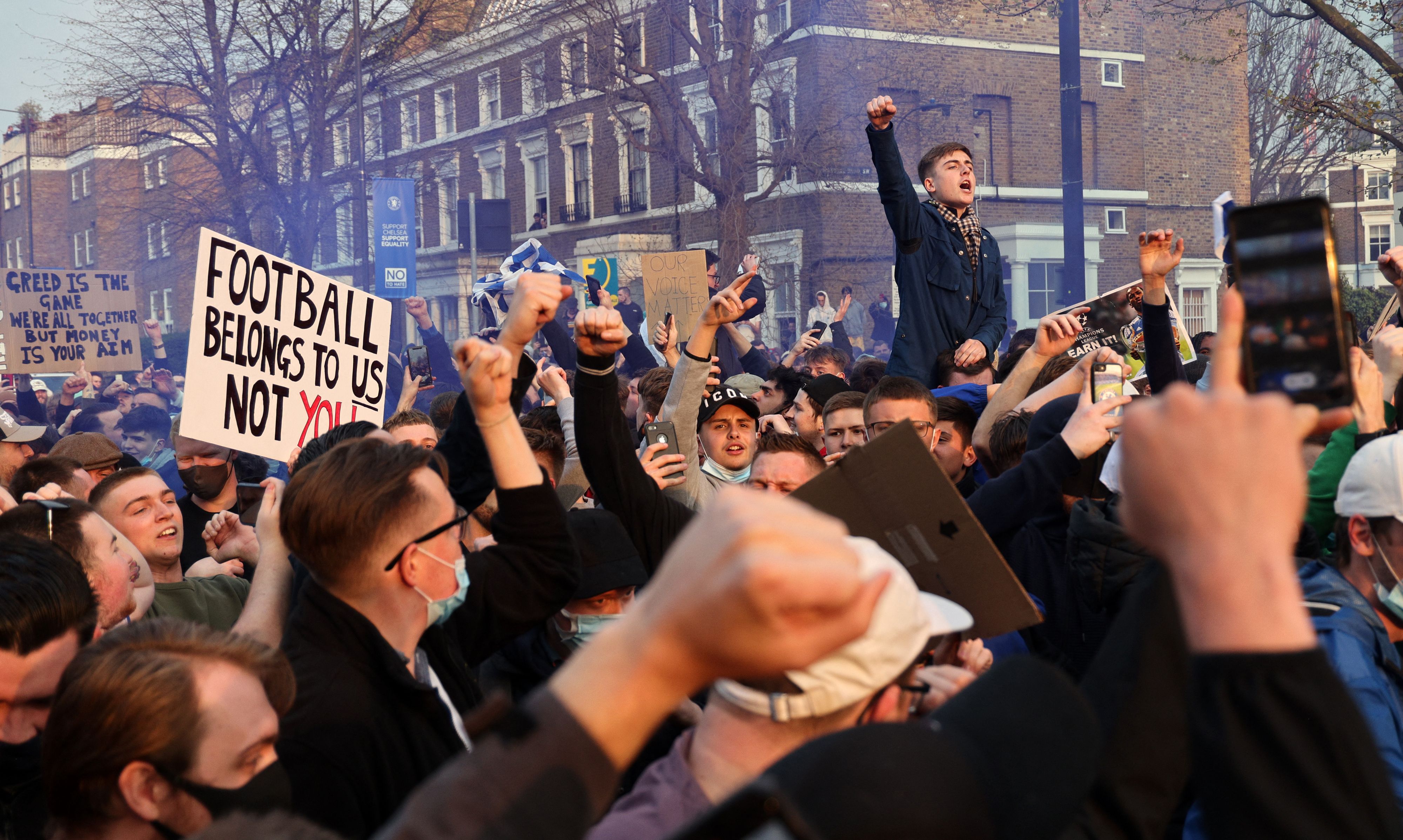The Premier League gets back to business with huge TV rights rollover after Super League scuffle
The fans’ revolt that killed the proposed European Super League was wonderful and rare. The Premier League’s cosy broadcast deal, through which they will continue to pay through the nose, indicates it was also fleeting, writes James Moore


The demise of the proposed European Super League (ESL) was a truly beautiful moment.
Billionaire dreams of an anti-competitive golden goose, a big boys’ closed shop, were shot down by passion and pride. With a side order of politics.
Those in charge of the latter usually cleave to commerce and cash. On this occasion they didn’t because they didn’t dare.
But while a “fan-led” review of football is now under way – chaired by, erm, Tory MP Tracey Crouch – normal service has resumed.
I invite those who doubt this to take a quick look at the Premier League’s shiny new TV deal.
The previous £4.7bn arrangement was due to expire in 2022, but will now be extended for a further three years, keeping the cozy club together until 2025.
That deal was something of a disappointment to the league, which had hoped for another record, perhaps with the assistance of Silicon Valley.
But most of the streamers passed, with Amazon content to dip its toes in the water with a small package for (relative) small potatoes.
BT Sport, meanwhile, decided it was content to settle for second place after Sky, so the main driver of rights inflation was gone. The result was a 10 per cent haircut to the previous bank-busting record.
Pandemic-driven uncertainty means the clippers now look good.
Standing pat, rather than taking a chance on another auction, suited everyone in the end.
The Premier League gets the revenues it wants (and needs), its broadcast partners get cost certainty and the maintenance of their respective market positions. As for the fans? The fans will continue to be asked to pay through the nose for subscriptions. It’s business, innit?
But wait, what’s this? An extra £100m of funding for smaller clubs, and for women’s and girls’ football, hailed as helping the pyramid to “get back on its feet”.
Please. This is an attempt to buy off any criticism. A little trickle down to keep the critics at bay in the wake of the fan-led furore and all that talk about “community”.
The hard fact is that the Premier League was itself a super league when it was launched; a creation designed to maximise revenues and to keep them in the top tier.
Sure, the games actually matter. There’s European qualification at stake every year, and a system of promotion and relegation too. And it has proven to be very popular, globally as well as in Britain.
However, the financial struggles of clubs lower down the pyramid, endemic long before the pandemic struck, speak to the problems it created. Covid just deepened them. They will not be solved by £100m over four years, which is little more than a pricey PR stunt.
It’s one that might work all the same.
The government said it would approve the deal in principle. Both ministers and the league, minus the ESL “Big Six”, scored goals through playing footsie during the brief crisis.
The affair afforded the government, awash in allegations of corruption and cronyism, a vanishingly rare opportunity to take the moral high ground. While it was fan pressure that won the game for the Premier League, Uefa and the status quo, having BoJo and co on the subs bench surely didn’t hurt.
It shouldn’t come as any surprise that the coziness has continued and the money train is now back on the rails at a time when the future is murky.
No one is sure how a future auction will play out. Will a Sky under Comcast, shorn of Rupert Murdoch’s emotional attachment to the rights that built the business, continue to pay up to cement its dominance? What will the up-for-sale BT Sport do under new ownership, if new ownership is found? Can the Premier League squeeze something more substantive from Silicon Valley than Amazon’s relative pittance? Will Dazn or another new entrant ride in on a silver charger?
With all this in the background, plus the pandemic, a rerun suits everyone.
So it’s back to business as usual, with the emphasis on business. That’s what this is all about. It always has been. Don’t kid yourself that the brief flowering of a fans’ revolt will change it.

Join our commenting forum
Join thought-provoking conversations, follow other Independent readers and see their replies
Comments